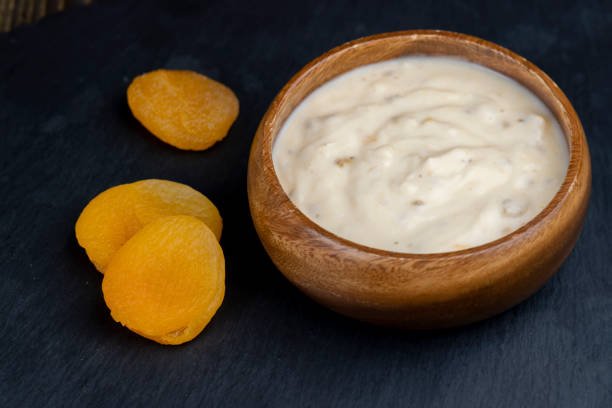Introduction
Did you know that your snack choice can impact your vision? Imagine something as simple and sweet as dried apricots playing a significant role in protecting your eyesight. Whether you’re worried about long hours in front of a screen or you’re trying to stave off age-related eye issues, dried apricots can become your go-to snack for promoting healthy vision. But how exactly do these small, golden fruits help? Let’s dive deep into why dried apricots deserve a spot on your plate, especially if you’re concerned about eye health.
The Nutritional Profile of Dried Apricots
Dried apricots are packed with nutrients that are not only great for your overall health but also specifically beneficial for your eyes.
Rich in Vitamin A
Dried apricots are a powerhouse of vitamin A, which is crucial for eye health. Vitamin A helps maintain the surface of the eye (cornea) and is essential for good vision, particularly in low-light conditions. A small serving of dried apricots can provide a significant portion of your daily recommended intake of this vitamin.
Packed with Antioxidants
These chewy fruits are loaded with antioxidants like beta-carotene, lutein, and zeaxanthin. These antioxidants are essential for neutralizing harmful free radicals that can damage eye cells over time.
High in Dietary Fiber
Besides vitamins and antioxidants, dried apricots are also a great source of dietary fiber. Fiber helps regulate digestion, but it also supports overall bodily health, which indirectly benefits your eyes.

How Dried Apricots Promote Eye Health
When it comes to your eyes, dried apricots pack a punch in ways you might not expect.
Vitamin A and Night Vision
One of the key benefits of vitamin A in dried apricots is its role in enhancing night vision. Vitamin A is essential for the production of rhodopsin, a pigment in the retina that helps your eyes adapt to low-light conditions. If you’ve ever struggled to see in dim lighting, adding more dried apricots to your diet could be a natural remedy.
Lutein and Zeaxanthin: Your Natural Eye Sunscreen
Lutein and zeaxanthin are carotenoids found in dried apricots that act like sunglasses for your eyes. They filter harmful high-energy blue light and protect your retinas from damage. Regular consumption of dried apricots can help prevent the gradual deterioration of your vision caused by constant exposure to screens or UV light.
Preventing Age-Related Macular Degeneration (AMD)
AMD is one of the leading causes of blindness in older adults, but did you know that dried apricots can help prevent it? The high levels of antioxidants in dried apricots can protect the cells in the macula, the part of the eye responsible for central vision, and keep your eyesight sharp as you age.
The Role of Antioxidants in Eye Health
Antioxidants are like the bodyguards of your eyes, shielding them from damage.
Beta-Carotene: A Vision Booster
Beta-carotene, a precursor to vitamin A, is abundant in dried apricots. Once consumed, it gets converted into vitamin A in your body, contributing to better eye health and preventing vision issues like night blindness.
The Impact of Free Radicals on Eye Health
Free radicals are unstable molecules that can damage the cells in your body, including those in your eyes. Over time, this damage can lead to diseases like cataracts and AMD. Fortunately, the antioxidants in dried apricots, such as beta-carotene and lutein, can neutralize these free radicals, offering a protective effect.
How Dried Apricots Help Combat Oxidative Stress
Oxidative stress occurs when there is an imbalance between free radicals and antioxidants in the body. By consuming antioxidant-rich foods like dried apricots, you can reduce oxidative stress and protect your eyes from long-term damage.
Benefits of Including Dried Apricots in Your Daily Diet
Adding dried apricots to your diet isn’t just good for your taste buds—it’s great for your eyes, too!
Improved Visual Acuity
Dried apricots help improve your visual clarity thanks to their high vitamin A content. If you’re finding it hard to focus or see fine details, this delicious snack can support better eye function.
Reduced Risk of Cataracts
Cataracts, a condition where the lens of the eye becomes cloudy, can impair vision. Studies show that vitamin A and antioxidants like those found in dried apricots may reduce the risk of developing cataracts.
Long-Term Eye Protection
Consistently consuming dried apricots can provide long-term protection for your eyes, keeping conditions like glaucoma, AMD, and other vision problems at bay.

Other Health Benefits of Dried Apricots
Aside from eye health, dried apricots come with a slew of other benefits.
Boosting Immune System Function
Thanks to their high vitamin A content, dried apricots play a key role in supporting the immune system. This means they’re not just good for your eyes—they’re good for your whole body.
Skin Health and Collagen Production
Vitamin C in dried apricots helps with collagen production, which is essential for maintaining skin elasticity. Not only will your eyes thank you, but your skin will also glow with improved texture.
Supporting Bone Health
Dried apricots are a great source of potassium and magnesium, two minerals that support bone health. Strong bones and healthy eyes? That’s a win-win!
How to Incorporate Dried Apricots into Your Diet
Incorporating dried apricots into your daily meals can be easy and delicious.
Healthy Snack Ideas
Dried apricots are a perfect on-the-go snack. Pair them with nuts or seeds for a balanced, nutritious treat that will keep your eyes healthy and your stomach satisfied.
Adding Dried Apricots to Meals
Chop up dried apricots and toss them into salads, oatmeal, or yogurt. You’ll get a sweet burst of flavor along with their health benefits.
Dried Apricot Smoothies and Desserts
Blend dried apricots into smoothies or use them as a topping for desserts. They add natural sweetness while boosting your eye health at the same time.
Tips for Choosing the Best Dried Apricots
Not all dried apricots are created equal, so here’s how to choose the best ones for your health.
Organic vs. Conventional Dried Apricots
Whenever possible, opt for organic dried apricots. Organic varieties are free from harmful pesticides and sulfites, which can be detrimental to your health over time.
How to Check for Added Sugars and Preservatives
Many commercially available dried apricots contain added sugars and preservatives. Check the label to make sure you’re buying pure, unsweetened apricots.

Proper Storage and Preservation
Store dried apricots in an airtight container in a cool, dark place to retain their freshness and nutritional value.
Potential Side Effects of Overconsumption
Even superfoods should be eaten in moderation. Here’s what happens if you overdo it on dried apricots.
Can Too Many Dried Apricots Be Harmful?
While dried apricots are healthy, overconsumption can lead to digestive issues due to their fiber content.
Sugar Content in Dried Apricots
Dried apricots contain natural sugars, which are fine in moderation. However, consuming too many can lead to an unnecessary spike in your blood sugar levels.
How to Enjoy in Moderation
Stick to one or two servings of dried apricots per day to reap the benefits without going overboard.
Conclusion
Dried apricots are more than just a tasty treat—they’re a powerful superfood for your eyes. With their high content of vitamin A, antioxidants, and other essential nutrients, they promote healthy vision, protect against eye diseases, and improve your overall well-being. Whether you’re looking to improve night vision, reduce the risk of cataracts, or simply maintain good eye health, dried apricots are the perfect addition to your diet. So snack smart, and let these golden gems take care of your vision.
FAQs
Which fruit is a miracle for eyesight?
Many consider blueberries and apricots to be miracle fruits for eyesight. Blueberries are rich in antioxidants, particularly anthocyanins, which improve vision and protect the retina from damage caused by UV light. Similarly, apricots, especially dried ones, are loaded with beta-carotene and vitamin A, essential for maintaining and improving eye health.
What is the best fruit to improve eyesight?
Oranges are one of the best fruits for improving eyesight. They are rich in vitamin C, which is crucial for the health of blood vessels in the eyes. Vitamin C also helps reduce the risk of cataracts and age-related macular degeneration (AMD). Other excellent fruits for vision include apricots, kiwis, and papayas.
Are dried apricots a superfood?
Yes, dried apricots are considered a superfood due to their high nutrient density. They are packed with vitamin A, beta-carotene, lutein, and zeaxanthin, all of which are beneficial for eye health. Additionally, they provide antioxidants that protect against oxidative stress and promote overall well-being, making them a powerhouse snack for maintaining eye health and other bodily functions.
Which food is best for eye vision?
Foods rich in vitamin A, C, E, omega-3 fatty acids, and antioxidants are best for eye vision. Top choices include carrots for their beta-carotene, spinach and kale for lutein and zeaxanthin, salmon for omega-3s, and oranges for vitamin C. These nutrients help reduce the risk of cataracts, AMD, and other eye-related issues.
How to improve vision in 7 days?
While significant changes in eyesight typically take longer than 7 days, you can begin improving your vision by:
- Eating eye-healthy foods like carrots, spinach, and dried apricots.
- Doing eye exercises such as focusing on distant objects or using the “20-20-20” rule (every 20 minutes, look at something 20 feet away for 20 seconds).
- Reducing screen time and wearing blue light-filtering glasses.
- Staying hydrated and getting enough sleep to support eye health.
- Ensuring you wear UV-protective sunglasses outdoors.



